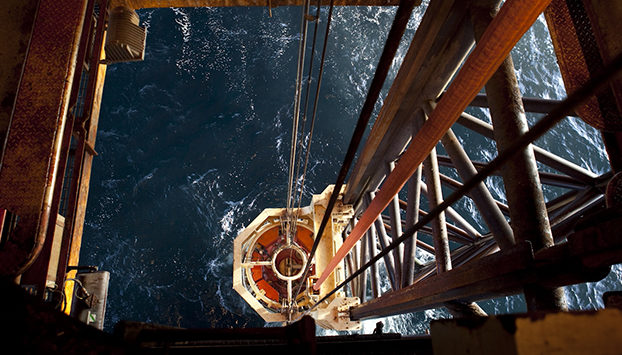
A drop in oil prices to below $79 a barrel for the first time in more than four years could not have come at a worse time for the North Sea industry, an expert told the Press and Journal last night.
Aberdeen University petroleum economics professor Alex Kemp said the plunge of Brent crude to its lowest level since September 2010 could lead to projects being shelved and discourage exploration.
He said it also put more pressure on Chancellor George Osborne to deliver a boost to the industry in his autumn statement on December 3.
Brent crude was down by more than $1.40 yesterday, to just under $78.40 a barrel.
Prof Kemp warned the “downward drift” in prices – lower by around 30% since June – could continue, threatening potential investment in the North Sea.
He said: “The information coming out from the IEA (International Energy Agency) is that demand is going to be significantly less that was previously thought.
“This is partly because of sluggish economic growth in the eurozone, while in the Far East there has been a deceleration of growth prospects in China – a very big oil importer.
“Meanwhile, growth of oil production in the US continues to be strong – they are probably producing more than Saudi Arabia right now – and that is likely to continue for who knows how long. The US, therefore, is importing much less.
“Countries such as Nigeria are now exporting zero oil to the US, so have had to find other markets and drop their prices.”
The oil price slump has come despite conflict and political tensions in key oil and gas regions.
Prof Kemp said the next meeting between members of producers’ cartel Opec, which takes place in Vienna, Austria, on November 27, will have a major bearing on where the cost of a barrel of crude is likely to go next.
While at least two countries – Venezuela and Iran – favour a cut in output, which would likely halt the slide, Saudia Arabia and Kuwait seem to want to leave it to the market.
Prof Kemp said: “There is a danger that they will not reach agreement to cut production. If they don’t, which would not surprise me, we could see oil prices drop a bit more.
“The North Sea is at a stage where production is coming down steeply, so this could not come at a worse time. New projects and exploration could be affected.”
There is now a more pressing need for the chancellor to encourage new field development activity and exploration, Prof Kemp said, adding: “He needs to show an understanding of the problems the industry faces.”
Andrew Reid, the Aberdeen-based chief executive of energy consultancy Douglas-Westwood, said: “A sub $80 barrel environment isn’t good news.
“The UK continental shelf was already in a cost reduction and efficiency drive at price levels above $100 which had led to activity and workforce cutbacks. The current price environment suggests economics have reduced by 20% since then, which is material.
“No amount of short term cost cutting will make up this difference, albeit it will continue at a more aggressive rate.”
Recommended for you
